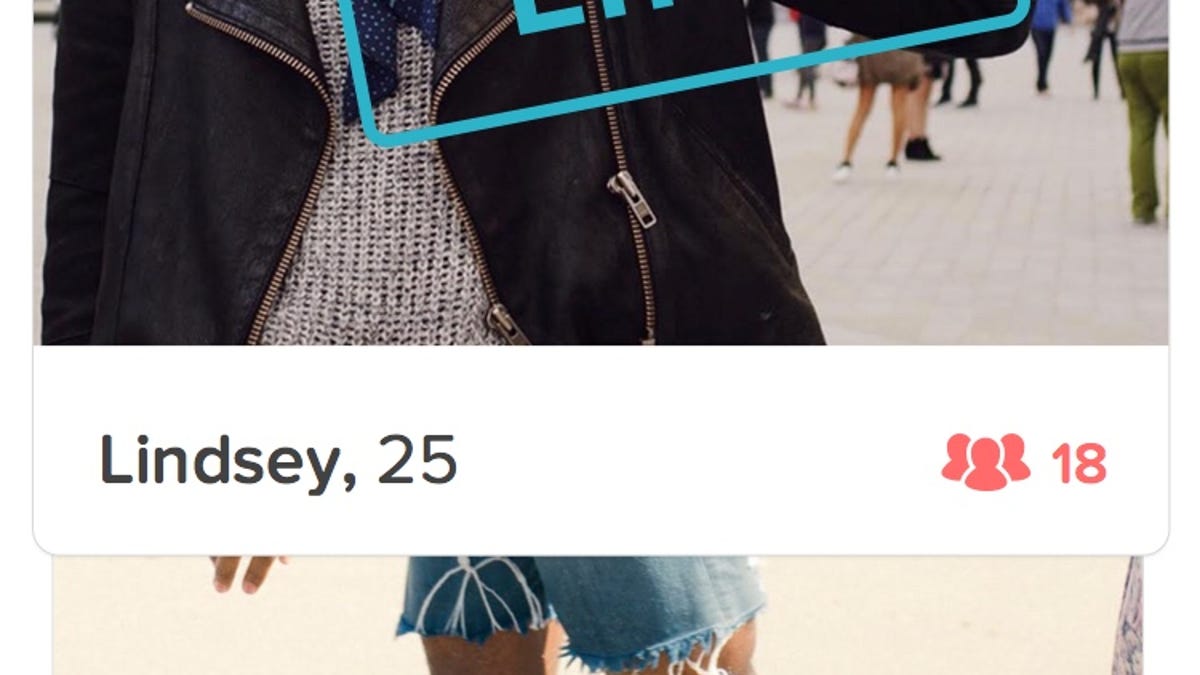Think you're hot on Tinder? That's up to its 'desirability' ranking system
Appearance is just one of many factors that go into the dating site's algorithm, CEO Sean Rad tells Fast Company.

Tinder says it takes more than just a pretty face to score well on Tinder.
Hot or not hot, your looks probably don't have as much to do with your dating success on Tinder as you would like to believe.
Tinder CEO Sean Rad said the smartphone app, which helps users anonymously locate others nearby who are interested in making a love connection, relies on an algorithm to determine users' "desirability" to make date suggestions. While attractiveness of a users' profile picture obviously plays a part in the process, several other factors help the app determine users' compatibility, Rad told Fast Company.
"It's not just how many people swipe right on you," Rad said, referring to the feature that allows users to indicate interest or attraction. "It's very complicated. It took us two and a half months just to build the algorithm because a lot of factors go into it."
Launched in 2012 out of media conglomerate IAC's Hatch Labs, Tinder has quickly become one of the most popular online dating apps, competing with the likes of OKCupid, Match.com and Grindr. In September, the company said it has approximately 9.6 million daily users, who execute more than 1.4 billion user profile swipes each day.
Tinder certainly isn't the only tech company to use algorithms and rating systems to try to improve users' experiences by predicting their preferences. Uber, Airbnb and TaskRabbit all have scoring systems for both customers and service providers. But Rad's revelation might bruise the ego of Tinder users who thought their pretty blue eyes or white smile were the secret to a successful love connection.
Predictably, Rad doesn't go into a lot of detail about the scoring system, which it refers to internally as an "Elo score," a term used to rank chess players' skill levels. The scores, which are not available to users, come from what Tinder data analyst Chris Dumler calls "a vast voting system" that can be used to study user profiles considered the most alluring.
"Every swipe is in a way casting a vote: I find this person more desirable than this person, whatever motivated you to swipe right," Dumler told Fast Company. "It might be because of attractiveness, or it might because they had a really good profile."
Tinder's rating system was revealed at the same time as another Fast Company article was published in which Rad sought to repair his image, which suffered from comments he made in an interview last year. Right before the company was scheduled to go public in November, Rad bragged to London's Evening Standard about a supermodel who allegedly has been "begging" him for sex. He also misidentified his attraction to intellectualism as "sodomy."
Rad's interview with the Standard, which occurred during the traditional pre-IPO "quiet period," led Tinder's parent company to file a clarification with the US Securities and Exchange Commission that said the article "was not approved or condoned by" Match.
In his interview with Fast Company, Rad insists -- in still colorful language - that the Standard took some of his more explosive quotes out of context.
"It's f-----d up, because I'm dealing with all of these stereotypes," he said. "Because I'm a successful guy in tech I must be a douche bag. Because I run a dating app I must be a womanizer."
He also concedes that someone in his position should have been more careful.
"At the same time, I f----d up," he admitted. "I should know better as a CEO. It's not that I'm ever going to stop being myself. It's that I've got to get better at framing what I'm trying to say."
Tinder representatives did not respond to a request for additional comment.
Match went public in November at $12 a share. Its shares traded up 1 percent on Monday, gaining 14 cents to $13.73.

